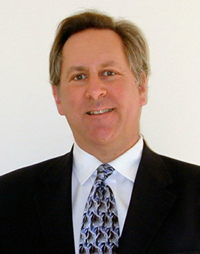|
 David Hoffman, foreign editor of The Washington Post and alumnus of the University of Delaware, has written a new book, “The Oligarchs: Wealth and Power in the New Russia.” David Hoffman, foreign editor of The Washington Post and alumnus of the University of Delaware, has written a new book, “The Oligarchs: Wealth and Power in the New Russia.”
The book was published by PublicAffairs Books and released Feb. 19.
It is a ground-breaking history of the birth of Russian capitalism as seen through the lives of six men who played central roles in the great drama of change and transformation. They became known as the oligarchs–men of wealth and power who ruled the country.
The six are Boris Berezovsky, a risk-taking powerbroker; Vladimir Gusinsky, an ambitious media magnate; Mikhail Khodorkovsky, a fiercely determined oil baron; Alexander Smolensky, an earthy banker; Anatoly Chubais, the steely economic reformer; and the powerful mayor of Moscow, Yuri Luzhkov.
Based on intensive interviews and exhaustive research, the book spans the revolutionary times of both Gorbachev and Yeltsin, starting with the early lives of the oligarchs and concluding with their fateful struggle for power under President Vladimir Putin.
In the 1980s, these six men were stuck in the dead-end Soviet system of shortages and bread lines. They lived in cramped apartments and longed for such simple possessions as a pair of jeans or a used car. But what distinguished them was an ability to change. Every one of them learned to manipulate the old system while at the same time making an incredible leap to the new world.
Hoffman chronicles their remarkable lives: their struggles during the years of stagnation; their first intoxicating taste of wealth during Gorbachev's perestroika and their merciless exploitation of the weakened Soviet state and Russia's fragile new democracy.
Through their triumphs and failures, the story is told of how a rapacious, unruly capitalism was born on the ashes of Soviet communism.
“The real value of this book is that it contains research bridging both the Gorbachev and Yeltsin eras in recent Russian history,” Hoffman said. “I track the story of six men through the first inklings of perestroika through the rise of Putin. In their individual stories can be found a lot of fascinating detail about how people who had never experienced market capitalism came to change their country after seven decades of socialism.”
“I have interviewed all six of these subjects and dozens of others, so much of the story is told in terms of firsthand experiences and recollections,” he added.
The book has received strong reviews. “David Hoffman has produced a monumental book,” according to Michael McFaul, of the Hoover Institution and Stanford University. “It is one of the best books written about post-Soviet Russia. Hoffman has combined a journalist’s sense of the story and a scholar’s attention to detail to write a book that is comprehensive and complete in its analysis yet fun and easy to read.”
“Finally, a truly revelatory book about the men who remade Russia in the 1990s,” Robert G. Kaiser, author of “Russia: The People and the Power, and Why Gorbachev Happened,” wrote.
“David Hoffman has dug deep into recent Russian history to find the forces and events that shaped the oligarchs, the most important individuals in Russia's first years as an independent democratic country,” Kaiser added.
Archie Brown of Oxford University said, “In this highly readable book, the complex and corrupting relationship between political power and new riches in post-Soviet Russia is explored by David Hoffman in fascinating detail. Hoffman also throws interesting light on the earlier careers of Russia's big-league tycoons.”
Hoffman was the Moscow bureau chief for The Washington Post from 1995-2001. He said the book “was an outgrowth of articles I wrote for The Post attempting to answer the question: who are the new capitalists and the new rulers of Russia?”
Hoffman returned to the United States last year and now serves as the newspaper’s foreign editor.
His wife, Carole Fleming Hoffman, is a University of Delaware graduate.
Feb. 25, 2002
|

